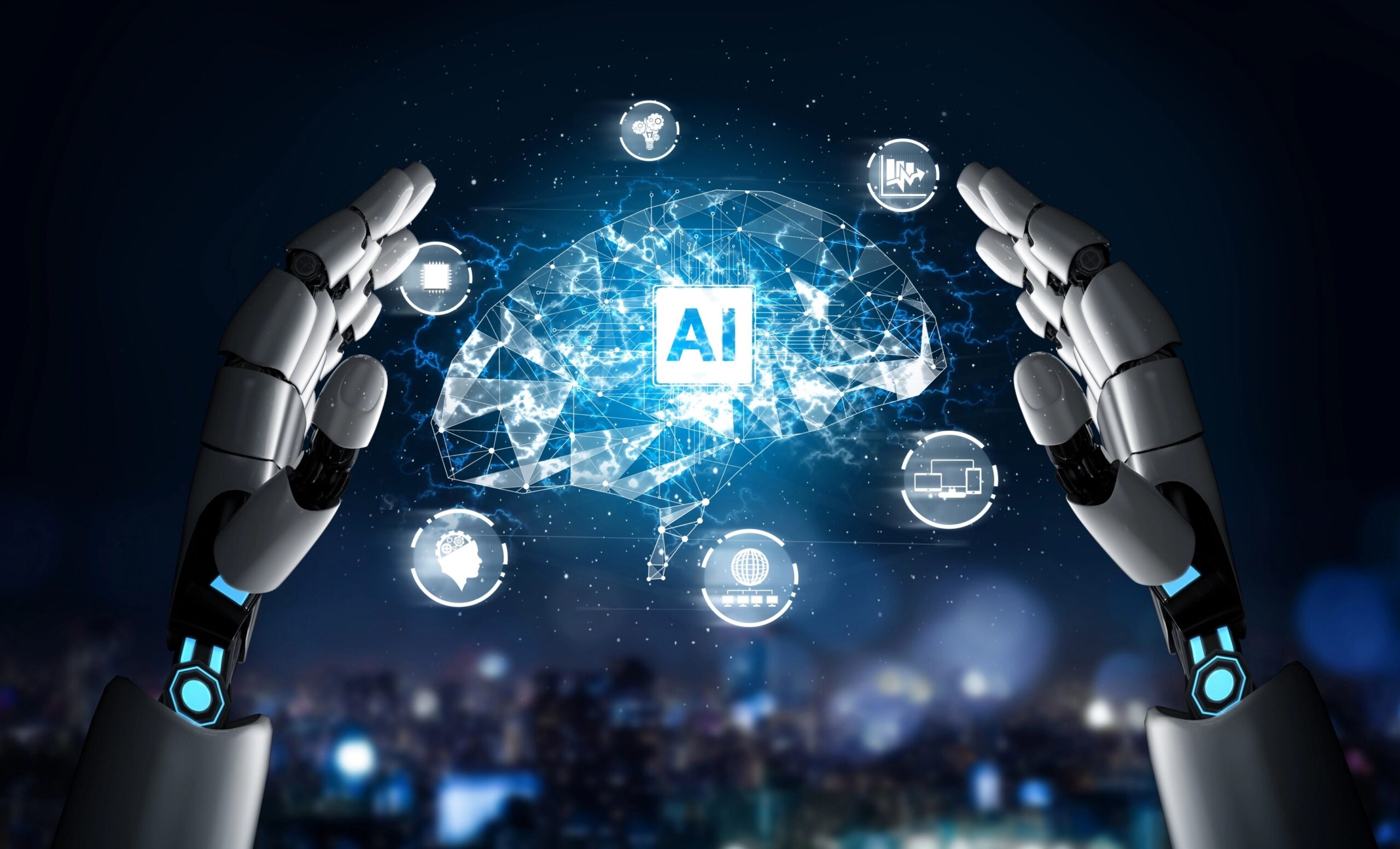Introduction
Artificial intelligence (AI) has rapidly transitioned from the realm of science fiction to a transformative force reshaping our world. At its core, AI refers to the ability of computer systems to perform tasks that typically require human intelligence, such as learning, problem-solving, decision-making, and understanding natural language. This article delves into the fundamental concepts of AI, explores its diverse applications across various industries, discusses the ethical considerations and challenges it presents, and offers a glimpse into its exciting future potential.
Fundamental Concepts of AI
The field of AI is broad and encompasses various sub-disciplines and approaches. Machine learning (ML), a key component of AI, involves training algorithms on large datasets to enable them to learn patterns and make predictions or decisions without explicit programming. Deep learning (DL), a subfield of ML, utilizes artificial neural networks with multiple layers to analyze complex data, achieving remarkable success in areas like image recognition and natural language processing (NLP). NLP focuses on enabling computers to understand, interpret, and generate human language, powering applications like virtual assistants and machine translation. Rule-based systems, an earlier approach, rely on predefined rules to make decisions or solve problems. The choice of AI technique depends heavily on the specific task and the available data.
Diverse Applications Across Industries
AI is no longer confined to research labs; it is being deployed across a multitude of industries, revolutionizing operations and creating new possibilities.
Healthcare: AI is transforming healthcare through faster and more accurate diagnoses, personalized treatment plans, drug discovery, and robotic surgery. AI-powered image analysis can detect diseases like cancer in their early stages, while predictive analytics can identify patients at high risk of certain conditions. Virtual assistants are also helping patients manage their health and access information.
Finance: The financial industry leverages AI for fraud detection, algorithmic trading, risk assessment, and customer service through chatbots. AI algorithms can analyze vast amounts of financial data to identify suspicious patterns and automate trading decisions with speed and precision.
Manufacturing: AI is optimizing manufacturing processes through predictive maintenance, quality control, and robotics. AI-powered sensors can monitor equipment health and predict potential failures, reducing downtime. Computer vision systems can inspect products for defects, ensuring higher quality standards. Collaborative robots (cobots) are working alongside humans, enhancing efficiency and safety.
Transportation: The development of autonomous vehicles is one of the most transformative applications of AI in transportation. Self-driving cars promise increased safety, reduced traffic congestion, and improved fuel efficiency. AI is also being used for route optimization, traffic management, and predictive maintenance of transportation infrastructure.
Retail and E-commerce: AI personalizes the customer experience in retail through recommendation systems, targeted advertising, and chatbots for customer support. AI algorithms analyze customer behavior and preferences to suggest relevant products and offers.
Education: AI has the potential to personalize learning experiences, automate administrative tasks, and provide intelligent tutoring systems. AI-powered platforms can adapt to individual student needs and provide customized feedback.
Ethical Considerations and Challenges
The rapid advancement of AI also brings forth significant ethical considerations and challenges that need careful attention.
Bias and Fairness: AI algorithms are trained on data, and if that data reflects existing societal biases, the AI system can perpetuate and even amplify these biases, leading to unfair or discriminatory outcomes. Ensuring fairness and mitigating bias in AI systems is crucial.
Privacy and Security: AI systems often rely on large amounts of personal data, raising concerns about privacy and data security. Robust data protection measures and ethical data handling practices are essential.
Job Displacement: Automation driven by AI has the potential to displace human workers in certain industries. Addressing the societal impact of job displacement through retraining programs and social safety nets is important.
Transparency and Explainability: Some advanced AI models, particularly deep learning networks, can be “black boxes,” making it difficult to understand how they arrive at their decisions. Ensuring transparency and explainability in AI systems is crucial for building trust and accountability, especially in critical applications.
Autonomous Weapons: The development of autonomous weapons systems raises serious ethical and security concerns, prompting international discussions and calls for regulation.
The Future of AI
The future of AI holds immense potential for further innovation and societal impact. We can expect to see more sophisticated AI systems that can reason, learn, and adapt with greater autonomy. The integration of AI with other technologies like the Internet of Things (IoT), robotics, and biotechnology will likely lead to new breakthroughs and applications. The development of artificial general intelligence (AGI), a hypothetical AI with human-level cognitive abilities, remains a long-term goal and a subject of intense research and debate.
Conclusion
Artificial intelligence is a powerful and transformative technology with the potential to address some of humanity’s most pressing challenges and create unprecedented opportunities. However, its development and deployment must be guided by ethical principles and a careful consideration of its societal implications. By fostering collaboration between researchers, policymakers, and the public, we can harness the benefits of AI while mitigating its risks, shaping a future where AI serves humanity in a positive and meaningful way.

Leave a Reply